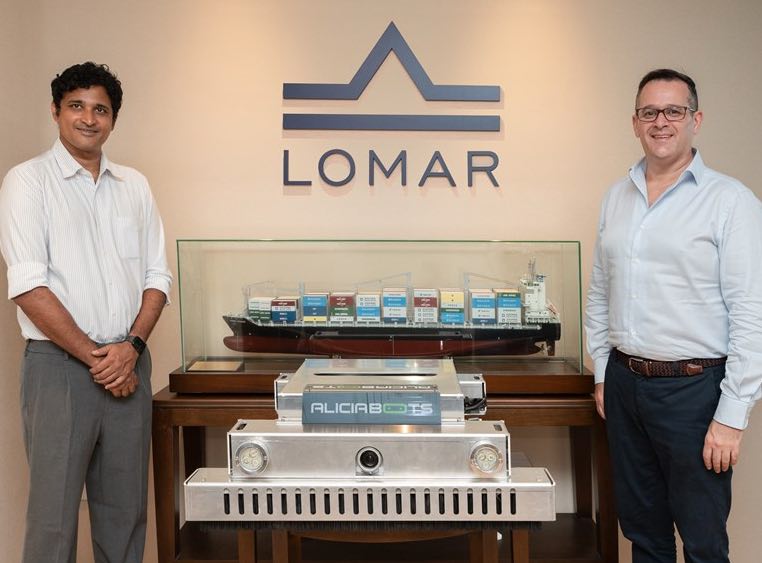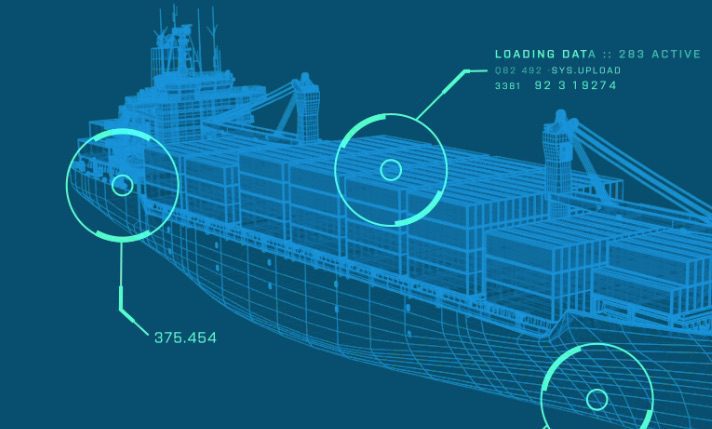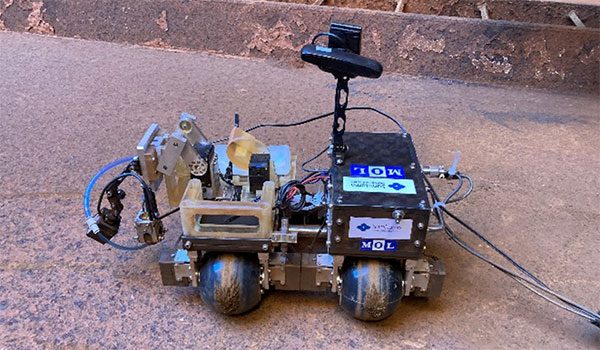29 April 2024
New Autonomous hull cleaning technology on vessels

Lomar collaborates with Alicia Bots, implementing Roverclean Autonomous hull cleaning technology on vessels to help modernize biofouling control methods and reduce carbon emissions.
- Lomar: A privately owned ship-owning and management group with nearly 50 years of industry experience.
- Alicia Bots: A tech start-up developing market-leading robotics and mobility solutions for the maritime, offshore, oil and gas industries.
Concept
In a development poised to redefine hull maintenance and maritime sustainability, Lomar announces its collaboration with Alicia Bots Inc. This effort integrates cutting-edge Robotic Hull Inspection and Grooming solutions into Lomar’s biofouling control practices as well as tests new use cases, marking a significant leap forward in the maritime industry’s pursuit of efficiency and environmental responsibility.
Lomar is to deploy Alicia Bots’ robotic technology on up to fifteen of its vessels. The autonomous hull cleaning technology provides a viable reduction in hull fouling, reducing fuel consumption, costs, and carbon emissions.
Autonomous Hull Cleaning Technology
The multi-purpose magnetic crawler robots that have been developed by Alicia Bots can operate autonomously or remotely via a tether cable and are designed to carry out underwater inspection and maintenance tasks on a ship and other steel structures. The adoption of a proactive in-water cleaning program has been proven to reduce fuel consumption and as a result of that, greenhouse gas emissions. It also has the ability to prolong the service life of antifouling coatings, reduce the point source discharge and cost of reactive underwater cleaning programs as well as prevent the transport of invasive species.

New technology venture launched by Lomar
A new technology venture lab launched by Lomar to catalyze the deployment of deep-tech solutions to solve the maritime industry’s biggest challenges.
Ship Nerd
Combining precision robotics and AI-powered analytics, these versatile crawlers are enabling safer, more efficient, and proactive practices. Apart from hull grooming, they are slated for use in cargo hold washing and cleaning, fire fighting, corrosion detection, reparation assistance, data collection, underwater inspections, and thickness measurements.
Lomar’s corporate venture lab, lomarlabs, will be involved in the collaboration, providing insight into the development of robotics to support maritime operations, particularly in the progress toward establishing the potential for autonomous marine drones. This promising new technology has the potential to reduce the need to send humans into dangerous environments in order to carry out essential maintenance work, such as underwater diving operations for routine cleaning.
Lomar is also making its ships available to Alicia Bots to test new use cases with a project that has received grant-aid from the Singapore MPA, to trial underwater inspections and cleaning in Singapore.
“The dawn of AI has significantly altered the way we view technology as a tool to facilitate our maritime industry’s routine operations. Lomar is committed to supporting the development, fine-tuning and implementation of promising technological solutions that will transform our operational and environmental effectiveness. In the race to create autonomous systems to support hull cleaning and other essential maintenance jobs on vessels, Alicia Bots has developed stand-out systems that provide huge potential for transforming existing labour-intensive maintenance processes with more efficient and effective AI technology while also saving on fuel costs and emissions.”
Nicholas Georgiou, CEO, Lomar
“Our collaboration with Lomar is a testament to them and the maritime industry’s commitment to innovation and sustainability. Together, we are ushering in a new era of Hull grooming, where cutting-edge technology, like the ROVERCLEAN, not only ensures a clean hull at all times but also paves the way for a greener and more efficient maritime future.”
Inder Mukhopadhyay, CEO, Alicia Bots
Source: LOMAR
See Also
During the ship’s voyages, sea organisms such as barnacles and worms build up on the submerged parts of the ship. This biological fouling or epibiosis is the unwanted accumulation of microorganisms, plants, algae or small sea creatures on surfaces. Thus, causing degradation to the paint coating while also the metal structures.
Biological fouling spawns a range of issues by increasing the weight and drag on the vessel. As a result, fuel efficiency gets worse, racking up costs and harming the environment while taxing the ship’s systems with sustained higher loads.
Therefore, divers mobilize to clean the gigantic superstructures and rid them of these parasites.

Underwater cleaning of ship hull – Explained
This is everything you need to know about commercial underwater cleaning operations for a ship hull and its dangers.


